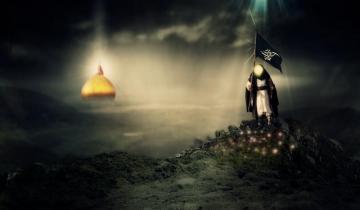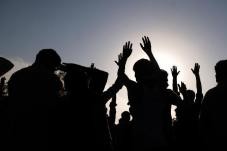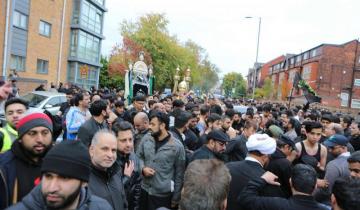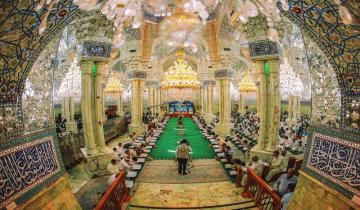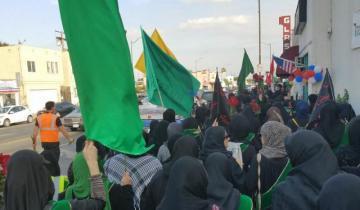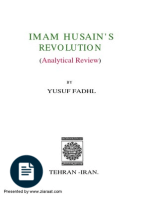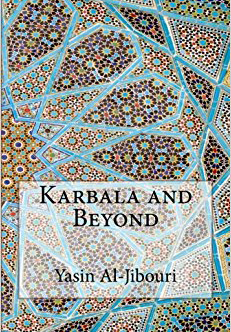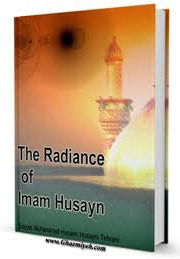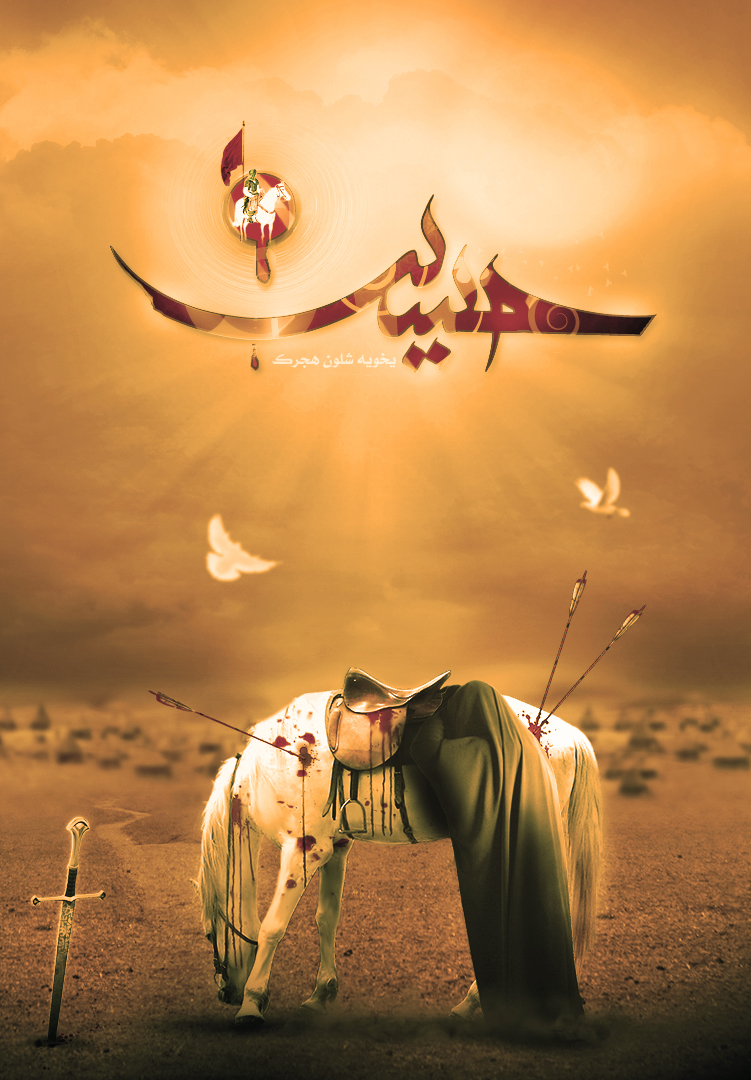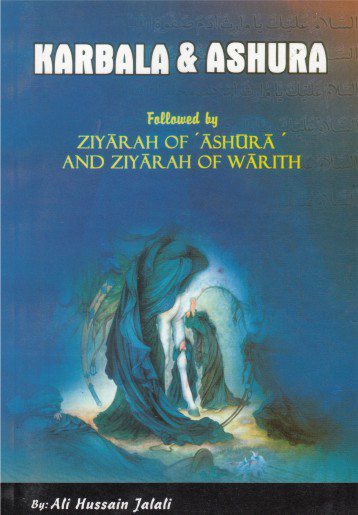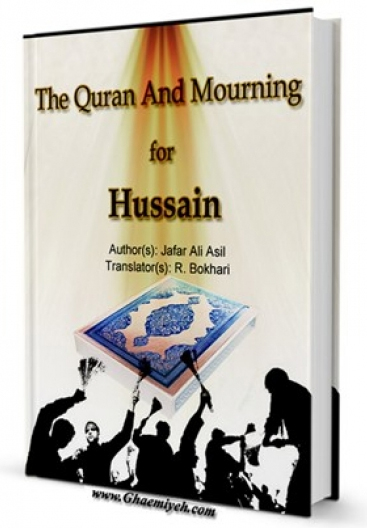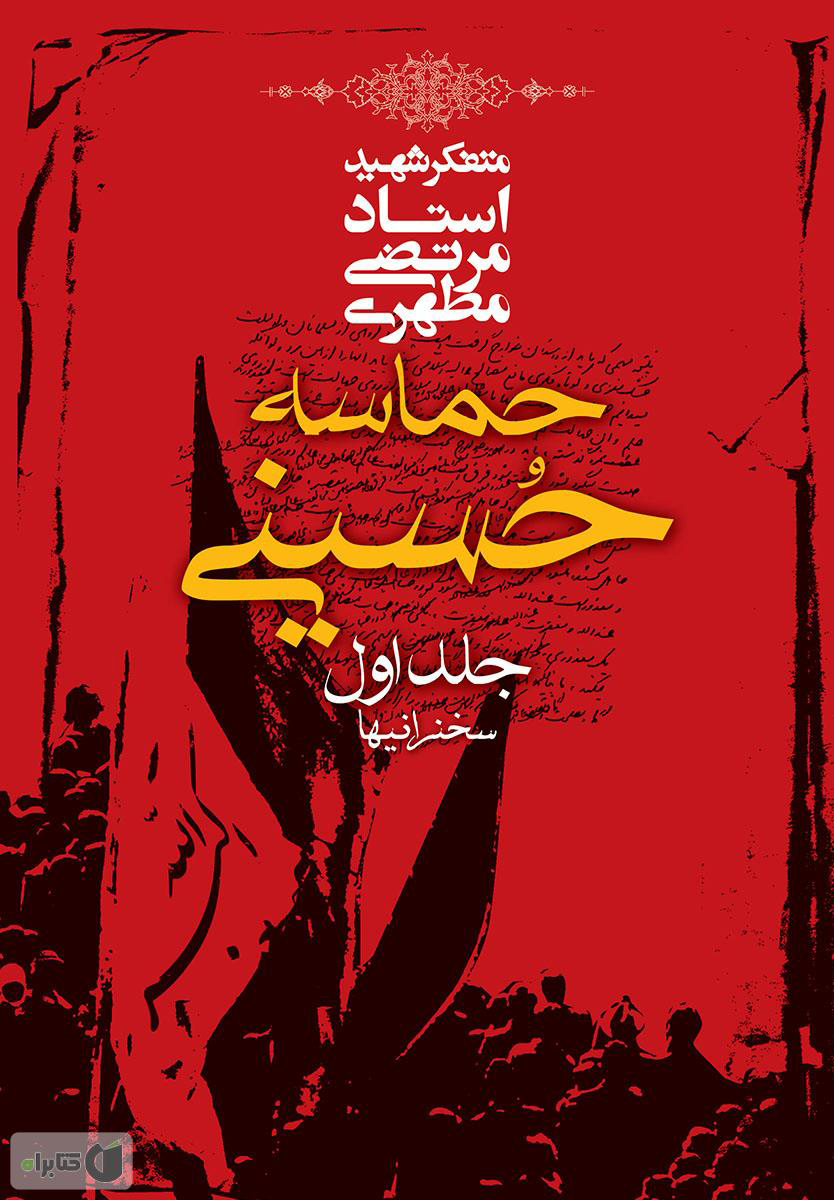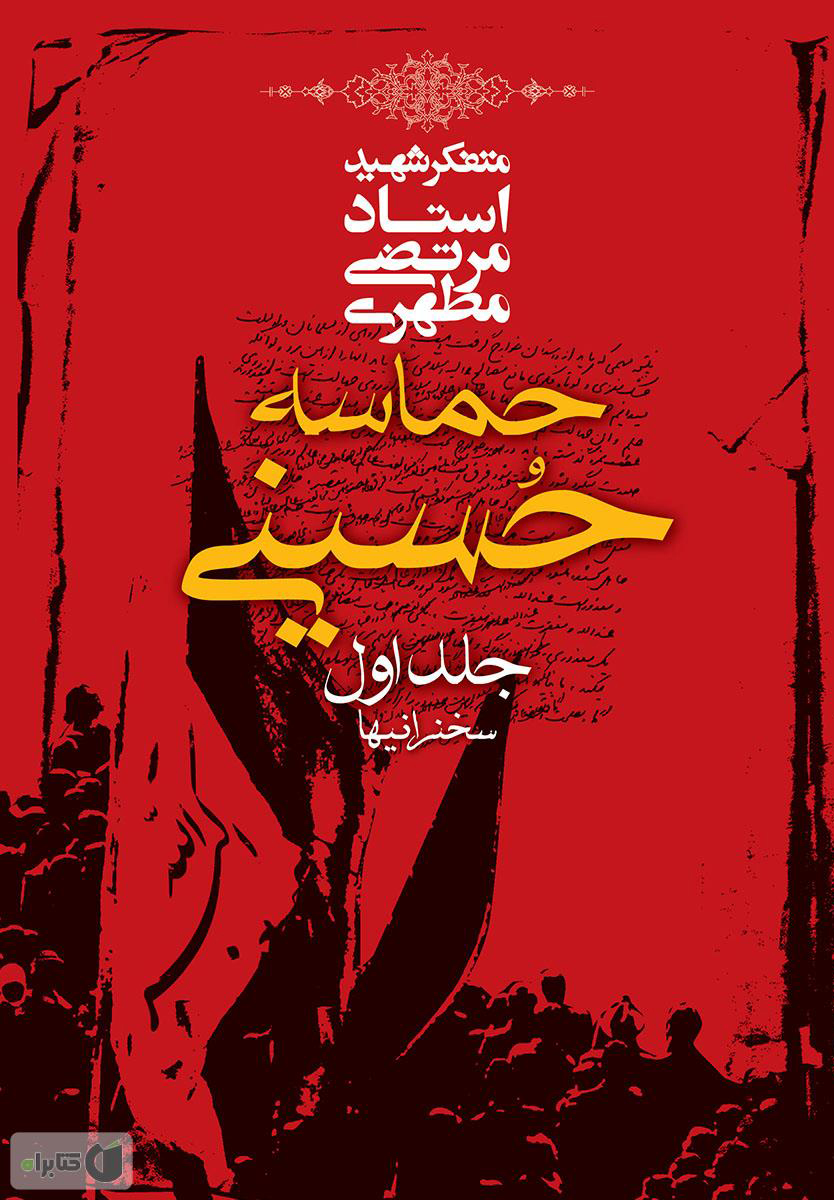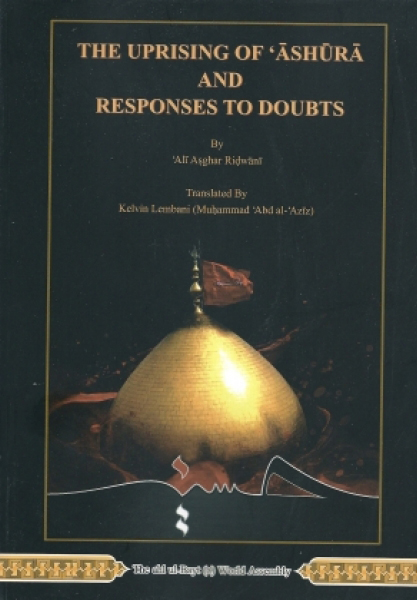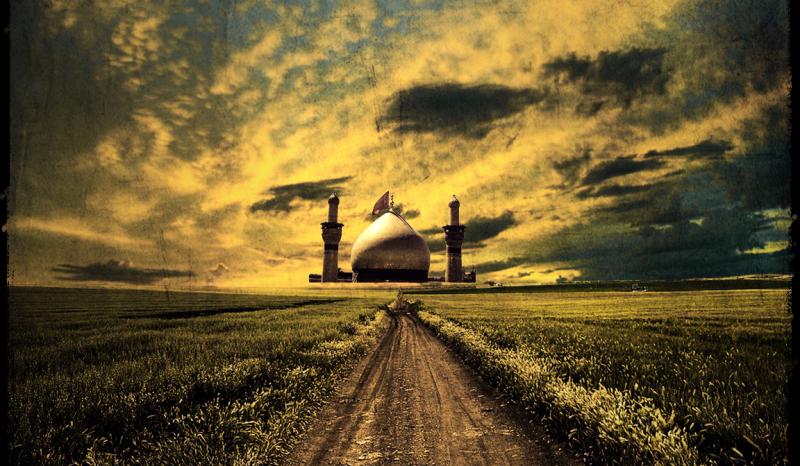
Ashura from the Viewpoint of Great Thinkers of the World
Any person who reads about the event of Karbala and carefully ponders what came to pass on the day of ‘Ashura, or hears about it from another person, will certainly be deeply saddened by what befell Imam al-Hussain (as), his Ahl al-Bayt (as) and the rest of his companions.
When a person with a sound conscience and healthy mind truly comprehends the heartrending occurrence, he will definitely decide to undertake a spiritual journey. He will embark on an inner pilgrimage and expedition towards Imam al-Hussain (as).
He will find Imam al-Hussain (as) and the purpose of his uprising captivating and concur with the objectives. In fact, this is exactly what has happened to many people who have read or heard about this event and we will now mention a few examples of such people:
The English author and explorer, Freya Stark
In her famous book entitled, "The Faces of Baghdad" [Suwar Baghdadiyyah], Freya Stark has assigned a short chapter to the event of Ashura. At the beginning of that chapter she says, "Shi‘ahs from all corners of the Muslim World remember al-Hussain and the site of his execution.
They publicly follow up on this event for the first ten days of the month of Muharram. Sorrow and grief is so predominant over them that on the last day, they parade mourning dramas and engage in public wailing and group weeping…"
In a separate chapter of this book, and in a more detailed manner, she has talked about the holy city of Najaf. She recounts, "And at a distance not far from the mausoleum, his son al-Hussain arrived from the other side of the desert. He rode his horse and crossed the desert until he reached the land of Karbala.
There, he pitched a tent. His enemies surrounded him and closed all access to water from him. The events which came to pass have been retained in the memories of people. Detailed accounts about the sad events that occurred at Karbala have been passed from one generation to the next for the last 1257 years.
There is no possibility of deriving benefit from this holy city unless one has enough knowledge and information about this event, because the tragedies which befell al-Hussain penetrate and seep through every existing being to the extent that it shakes the very roots of their inner conscience and the foundations of their beliefs. This event is one of those rare occurrences which make men shed tears involuntarily."
She then says, "When these tragic events came to pass, history stopped at Karbala and Najaf because people migrated to settle in these two cities with the intention of renouncing Yazid and washing their hands of the enemies of al-Hussain, the oppressed."
Proffessor Edward Granville Browne (1862-1926)
The famous orientalist Edward Browne, professor of Arabic and oriental studies at the University of Cambridge, recounts the appalling events which befell Imam al-Hussain (as) at Karbala in this way, "… a reminder of the blood-stained field of Karbala, where the grandson of the Apostle of God fell at length, tortured by thirst and surrounded by the bodies of his murdered kinsmen, has been at anytime since then sufficient to evoke, even in the most lukewarm and heedless, the deepest emotions, the most frantic grief, and an exaltation of spirit before which pain, danger and death shrink to unconsidered trifles."
He also says, "Is it possible to find a person who hears about the event of Karbala and is at the same time not overwhelmed by sorrow and grief? Even non-Muslims cannot refute the purity of spirit and morality which accompanied this Islamic holy war."
Charles Dickens
This English Writer says this about the uprising of ‘Ashura, "If al-Hussain fought to quench his worldly desires, then I do not understand why his sisters, wives and children accompanied him. It stands to reason therefore that he sacrificed purely for Islam."
Thomas Masaryk
While comparing Imam al-Hussain (as) with Prophet Jesus (as), Thomas Masaryk says, "The sufferings of Jesus Christ, when compared to the sufferings of al-Hussain, are like feathers made out of straw in the face of a huge mountain."
Justice A. Russell
This English poet describes the sorrowful event of ‘Ashura in this way:
"… they hit the blessed mouth of Imam al-Hussain (as) with their wooden sticks. O holy body that has been crushed under hooves! You are that same body which used to charm every person who cast a glance at you.
Blood that has been shed from your blessed veins and has dried is a heavenly mixture which no horse hoof has ever had the opportunity to be painted with such a holy mixture (or color) up to now. O bare and barren earth of Karbala! There is neither grass nor herbs growing on you! Forever the song of sorrow will be chanted for you and the dress of sorrow put on you because it was on your land that the holy body of Fatimah’s son was torn to pieces. He dedicated his spirit to God."
Captain H. Niblet
While describing the night of ‘Ashura, he recounts, "That night, when the camp fires were burning all around him, the Imam called his followers and gathered them around him. In one long speech, he addressed them, ‘Those who will stay with me are going to be martyred tomorrow.’
Then, he acted in a very gracious manner; a manner which proves that he possessed complete knowledge about the weaknesses of mankind, which shows the strength which his sacrificial soul possessed and is a sign of how generous and kind that great man was.
He said to his followers, ‘Anyone who does not find in himself the courage and strength for steadfastness and martyrdom should secretly sneak out under the cover of darkness towards the east, and there is no reason whatsoever for anyone to feel ashamed.’
When the morning of ‘Ashura emerged, purple clouds gathered in the eastern sky, and seventy one people possessing strong faith and certainty surrounded Imam al-Hussain (as). All of them were ready for death and martyrdom."
Gibbon, the English historian (1737-1794)
He writes, "Notwithstanding that a long period of time has elapsed since the event of ‘Ashura occurred, and we too are not countrymen with the main actors in that event, nevertheless the unbearable hardships which Imam al-Hussain endured still arouse emotions in the most cold and stonehearted of readers; so much so that every reader finds in himself a kind of affection and love towards that great man."
Morris Duxbury
This American historian has written about mourning for Imam al-Hussain (as). He recounts, "If our writers of history could percive the reality of the day of ‘Ashura, they would not view mourning ceremonies which are held for Imam al-Hussain to be something queer or unusual.
Al-Hussain's followers know that by means of mourning for their Imam, they are refusing to go under the yoke of oppression, lowliness and foreign domination because the message of their Imam and leader was that they should never surrender to oppression and tyranny.
Al-Hussain deliberately overlooked his own life, possessions and children for the sake of morality, principle, the people and the integrity of Islam. It is for this reason that he did not go under the yoke and adventurousness of Yazid.
Therefore, come and let us all imitate his way of life and free ourselves from the oppression of Yazid and those like Yazid. Let us prefer honorable death to living our lives in lowliness. In a nutshell, these are the basic teachings of Islam.
It is clear what status such a community will attain; a community which has been trained on such values from their cradles to the graves. Such a people possess every kind of honor and dignity, because all the people of that community are soldiers fighting for what is right, honorable and dignified."
Borris Salama
This Christian poet says, "On nights when I stayed awake, I could not but spend them with pain. The cause of my mental torment was my own thoughts and imagination about the people of the past.
I especially thought about the two great martyrs of history: Imam ‘Ali and his son Imam al-Hussain . At one moment, I cried a lot because of the affection and fondness which I felt for those two great men. Finally, I composed a poem for ‘Ali and al-Hussain."
Gabriel Dankiri
He describes the savagery and barbarity of Yazid’s army in this way, "Yazid’s soldiers on the day of ‘Ashura showed so much cruelty and ravenousness that no one can call to mind a day (in the history of mankind) equal or parallel to it in barbarity. They did not even have mercy on breast feeding newborns and minors.
They went so far as to take the bloody head of Imam al-Hussain to Damascus. Yazid imagined that with this apparent victory, he would live forever in peace and tranquility, but memories of that day have been revived every day from the day when that sad event occurred up to today, by way of shedding tears, mourning and grieving…"
George Jordaq
This Lebanese Christian Writer recounts, "Yazid was a man who had inherited all the evil qualities of his ancestors, the Bani Umayyah. He even exceeded them. Yazid shared in all the vice, iniquity and mischief of Bani Umayyah in general…
There was no one more deprived of human values than Yazid… and in comparison, there was no one more perfect in human values and morality than al-Hussain ibn ‘Ali, the martyr in this event. Yazid possessed all the ugly traits imaginable; he was a spineless power seeking opportunist who lacked strength and a man who would never hesitate to commit murder.
And on the opposite side, that is to say on the side of ‘Ali’s children, was to be found all the lofty and praiseworthy human attributes in the best sense of the word; such traits as a generous disposition, courage, liberality and martyrdom…"
Doctor Joseph
This French historian narrates, "During the days of ‘Ashura, the Shi‘ahs mention and listen to the sufferings of al-Hussain. They make every effort to recount the virtues of the Prophet’s family and Household in the best possible manner…"
Claudine Rulu
He is a news commentator for the Le Monde Newspaper who has written about Imam al-Hussain (as) and the event of ‘Ashura. He recounts, "In the month of Muharram of every year, the Shi‘ahs procced to remind one another about the event of ‘Ashura and revive the sufferings of Imam al-Hussain, who is the symbol of courage and justice, as opposed to Yazid, the incarnation of abomination and villainy. They draw similitudes between the tyrants of their time and Yazid."
Mahatma Gandhi
Mahatma Gandhi was the architect of Indian independence. He was the leader of the national liberation struggle of the people of India during their quest for freedom from British colonization.
He has been quoted as saying, "I have not brought anything new for the people of India; I just brought for them the results which I obtained from my researches about the history of Karbala and that of the champions of the event of ‘Ashura. If we want to free India, it is incumbent upon us to traverse the same path which al-Hussain ibn ‘Ali (as) traversed."
Sawir Jiny Naid
This Indian poet believes that the mourning ceremonies of Imam al-Hussain's (as) followers bring about revival of the heart-rending event of Karbala. He says that the uprising of Imam al-Hussain (as) strengthens the religion of Muhammad.
This poet believes that by this uprising, Imam al-Hussain (as) proved his ultimate love and affection for Allah. He says, "During the night preceding that of al-Hussain's martyrdom, his disciples wear black shirts, remain bare footed and congregate to remember the heart-rending event of ‘Ashura with tearful eyes.
While describing the incidents which took place that night, they all shout with one voice, ‘O al-Hussain! O al-Hussain! Why do your thousands of thousands of friends shed tears like this for you? O holy one possessing a high status! Is all this not because of your matchless sacrifices? Because you raised the banner of Muhammad’s great religion and proved to the amazed world your wonderful love for Allah’."
Irunick
This American historian recounts, "I do not like to make the account of al-Hussain's martyrdom long because of the distastefulness and revulsion of the nature of that event. No incident uglier than this event came to pass in the entire history of Islam.
Even though the martyrdom of the Commander of the Faithful, Imam ‘Ali, is considered as a great calamity, the incident of al-Hussain consisted of atrocious killings, mutilations and taking people into captivity; acts which listening to send a shiver down a man’s spine… because it is the most outstanding account of what suffering means."
Al-Jamili
Even though he expresses sorrow for both sides of the confrontation on the day of ‘Ashura, he says this about Yazid’s apparent regret, "His remorse was false. Had it been real, he would have punished ‘Ubayd Allah ibn Ziyad, ‘Umar ibn Sa‘d and Shimr ibn Dhi al-Jawshan.
If he showed apparent remorse, it was because he realized that he had inflamed the anger of the Muslims throughout eternity, not because of the actual crimes which he had committed."19
The German researcher Martin
He recounts, "… al-Hussain was the only person in the last fourteen centuries to stand up against an oppressive and tyrannical government… He remains the only politician in the entire history of mankind to employ such effective politics through uprising and revolution. Al-Hussain's unchanging motto was ‘I will die in the way of truth and virtue, but I will not pay allegiance to iniquity…’
Al-Hussain realized that Bani Umayyah, who had changed the caliphate to an absolute monarchy and authoritative sultanate, were deliberately disregarding and even purposefully trodding upon the laws of Islam. He could foresee that very soon the foundations on which Islam was founded would fall. He perceived that nothing would remain of Islam and the Muslims if he delayed any more. Therefore, he decided to stand up against oppression and tyranny.
By sacrificing his most beloved ones, proving how right he was and exposing the wrong which was committed against him by Bani Umayyah, al-Hussain taught mankind valuable lessons in self-sacrifice and risking one’s life for what is right. He recorded the name of Islam in history and made it renowned in the world. If such a heart-rending event had not taken place, Islam and the Muslims would certainly have been effaced and completely wiped out."
Jurji Zaydan
He narrates about Imam al-Hussain in this way, "… The sight of Imam al-Hussain's head affected all, making everyone sorrowful… When Yazid’s eyes fell on the cut head of Imam al-Hussain, he shivered from head to foot and realized what an abominable act he had committed."
Nicholson
He recounts, "The event of Karbala caused regret and remorse for Bani Umayyah because it united the Shi‘ahs, who became unanimous in their agreement to avenge the blood of Imam al-Hussain."
SOURCES:
1. Book: 'The Uprising of Ashura and Responses to Doubts' by Ali Asghar Ridwani.
2. Ahl-ul-bayt.org (http://www.ahl-ul-bayt.org/media/aw_library/book/589/bookfile/1486366270356.pdf)
-
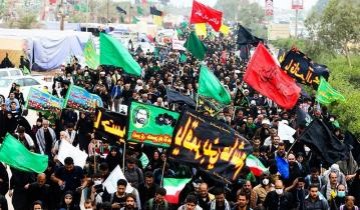 Arbaeen 2017: Pilgrims Flocking to Karbala for Arbaeen (PHOTOS)
Arbaeen 2017: Pilgrims Flocking to Karbala for Arbaeen (PHOTOS)
-
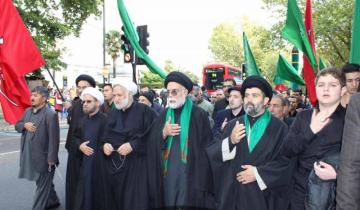 Ashura 2016: The annual Ashura day procession in London (PHOTOS)
Ashura 2016: The annual Ashura day procession in London (PHOTOS)
-
 Arbaeen 2016: World Shiite Muslims Commemorate Arbaeen (PHOTOS)
Arbaeen 2016: World Shiite Muslims Commemorate Arbaeen (PHOTOS)
-
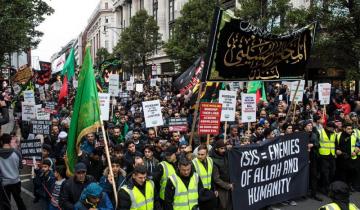 Ashura 2017: Thousands of Muslims march on Ashura day in London (PHOTOS)
Ashura 2017: Thousands of Muslims march on Ashura day in London (PHOTOS)
-
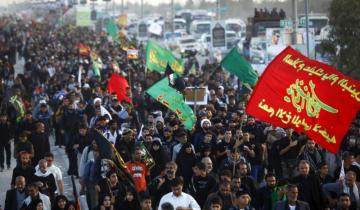 Arbaeen 2015: Millions of pilgrims throng Iraq's Karbala (PHOTOS)
Arbaeen 2015: Millions of pilgrims throng Iraq's Karbala (PHOTOS)
 Library
Library 






